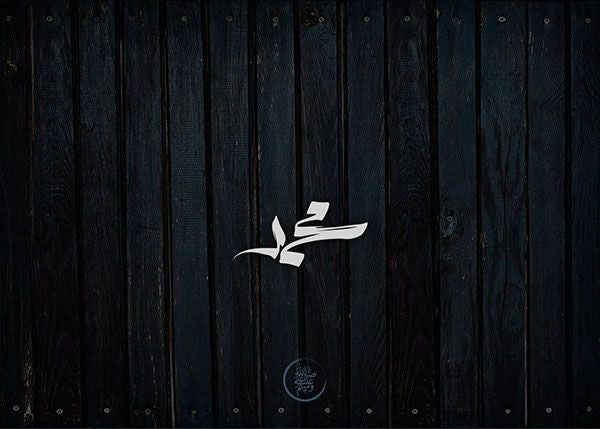3 Facts About The Birth Of The Prophet.
1) The Prophet (PBUH) Was Born In The Year Of The Elephant
This is the story of an Abyssinian man named Abraha, who rose to become the Christian king of Yemen. Shortly after his rise to power, Abraha built a grand church in Yemen with the hope of attracting visitors for both business and worship. However, the church didn't gain the popularity he had anticipated. It was then that he learned about the Kaaba in Makkah, a sacred place that drew countless worshippers and was considered the "hub of worship" by the people.
Driven by jealousy and a desire to redirect attention to his own church, Abraha set out on a mission to destroy the Kaaba. He led his army, accompanied by a massive war elephant, with this destructive goal in mind. While some interpretations suggest he brought along a whole army of elephants, the Qur'an, in Surah Al-Fil, mentions only one elephant. Regardless, this marked the start of a significant historical event, remembered for its symbolism and divine intervention.
As the Abyssinian army approached Makkah, the elephant halted in its tracks, refusing to proceed any further. No matter that amount of beating thrown at it, the elephant would continuously stop, clearly hesitant to go any further. As they came closer to the Kaabah, the army suddenly noticed flocks of birds, طَيْرًا أَبَابِيلَ (as mentioned in the Quran as “flocks of birds”) from nowhere in the sky, carrying 3 pebbles made of hot clay in their beaks. The birds released the pebble from a high altitude, signaling the start of an unexpected attack.
These tiny missiles of clay brought destruction to the entire army, and Abraha himself perished, all by the will of God. Surah Fil in Quran illustrates the incident clearly.
The surah is written in the interrogative form inviting reflection on the power of divine intervention,
أَلَمْ تَرَ كَيْفَ فَعَلَ رَبُّكَ بِأَصْحَـٰبِ ٱلْفِيلِ (١) أَلَمْ يَجْعَلْ كَيْدَهُمْ فِى تَضْلِيلٍۢ (٢) وَأَرْسَلَ عَلَيْهِمْ طَيْرًا أَبَابِيلَ(٣) تَرْمِيهِم بِحِجَارَةٍۢ مِّن سِجِّيلٍۢ( ٤) فَجَعَلَهُمْ كَعَصْفٍۢ مَّأْكُولٍۭ (٥
The way in which Allah (SWT) protected the Kaabah gave great significance to this event as The year became known as the Year of the Elephant, marking the start of a system for counting years in the Arabian Peninsula. This method of reckoning remained in use until it was replaced by the Islamic calendar during the caliphate of Hazrat Omar (RA).
2) Prophet Muhammad (PBUH) Was Born On A Monday
Though scholars differ regarding the exact date of the Prophet Muhammad's (PBUH) birth, the consensus is that it occurred around the 12th of Rabi' ul-Awwal, with some suggesting it may have been a day or two earlier or later. Despite these variations, the significance of his birth is universally recognized in the Islamic world. What remains indisputable is the profound impact of his arrival, which forever changed the course of human history.
One particular hadith sheds light on the day of his birth. The Prophet (PBUH) himself mentioned being born on a Monday. In a narration reported by Abu Qatadah, when the Messenger of Allah (PBUH) was asked about the significance of fasting on Mondays, he responded by saying:
This hadith emphasizes the special connection between Monday and two significant events in the life of the Prophet (PBUH) which are his birth and the start of divine revelation.
Secondly, this narration reminds us that fasting carries immense spiritual significance beyond the sacred month of Ramadan, as we often associate fasting with the month of Ramadan, we tend to forget that fasting itself is an act of worship deeply valued in Islam, regardless of the time of year. Fasting on Mondays, for instance, is a subtle way of honoring the Prophet's birth and the beginning of his mission to deliver Allah's message to mankind.
Through this practice, Muslims around the world not only recall the day their beloved Prophet was born but also reflect on the immense blessing of the revelation that came through him.
3) He Was Born In A Noble Tribe But Orphaned At A Young Age
The Prophet (PBUH) was born into the reputable tribe of Quraysh, more specifically, the Banu Hashim clan. The Banu Hashim were famously known for safeguarding the Kaaba and their honorable status. Abdullah, the father of Prophet Muhammad (PBUH), passed away long before his birth, while his mother, Amina bint Wahb, passed away when the Prophet (PBUH) was only six years old. Orphaned at such a young age, the Prophet (PBUH)’s grandfather took him under his wing, and later, his uncle Abu Talib cared for him as his own son. These early losses filled his life with valuable experiences and played a crucial role in shaping his noble character.
Another significant detail of the Prophet (PBUH)’s early life is when he was sent to Halima al-Sa’diyah, a woman from the Banu Sa’d tribe, who nursed him in the desert. This was a common tradition among Quraysh families, as the desert environment was believed to promote and boost the health and resilience of a child.
His early orphanhood is reflected in his deep empathy for orphans, as mentioned in the hadith narrated by Abu Hurairah, where the Messenger of Allah (PBUH) said:
References
https://sunnah.com/riyadussalihin:1255
https://en.wikipedia.org/wiki/Al-Fil
https://en.wikipedia.org/wiki/Year_of_the_Elephant
https://sunnah.com/ibnmajah:3679

Share:
The Final Moments of Prophet Muhammad (PBUH)
Investing in the Future: Islamic Perspectives on Education